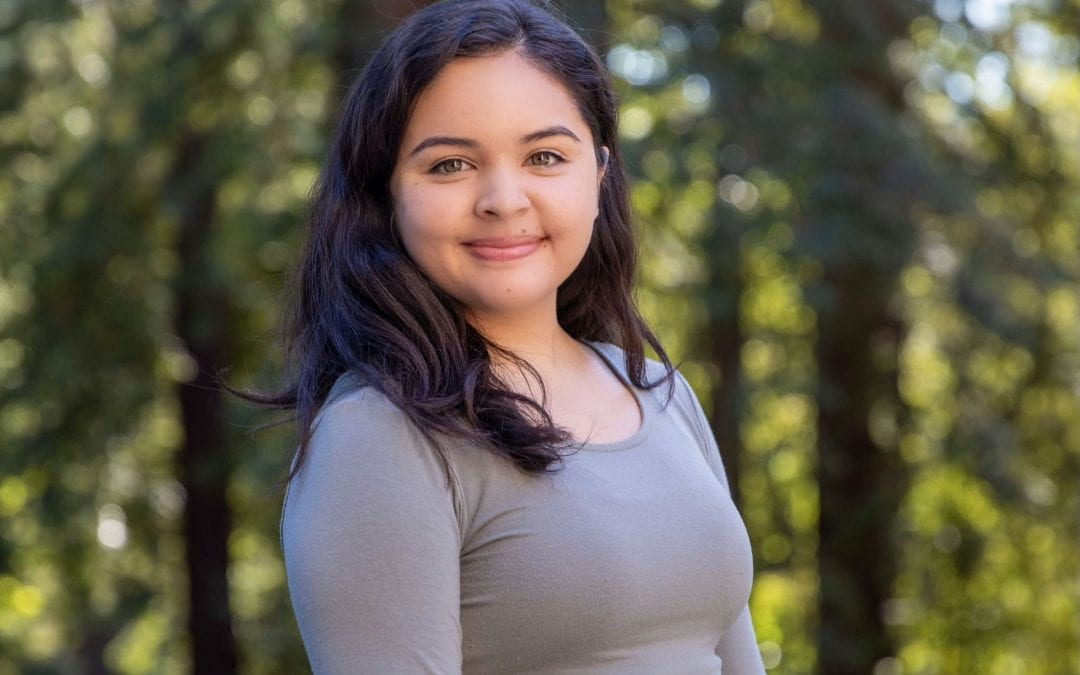Yvonne Vasquez, Graduate Student, MCD Biology
September is Childhood Cancer Awareness Month. To help spread awareness of the different cancers that impact children, we will be profiling a different researcher each week to talk about the cancer they study, their motivations for doing this research, and how they hope their research will help in the fight against childhood cancer.
What type of cancer do you research?
My lab studies rare cancers that occur in kids and young adults. Our lab’s goal is to learn more about pediatric cancers and identify more effective and less toxic treatments for patients.
I am currently researching a cancer called synovial sarcoma. Synovial sarcoma is an aggressive and rare cancer of the connective tissues in our body, including tendons, muscle, and ligaments. About 800-1000 people are diagnosed with synovial sarcoma in the United States each year. Synovial sarcoma can occur at any age, but it is more common in adolescents and young adults (10-40 years). Since the first reporting of synovial sarcoma in 1865, a lot of progress has been made to better understand this cancer, however it still remains mysterious. Because of a lack of understanding of the biology of synovial sarcoma, there are no effective treatments, and the survival rate of patients remains low. There is an urgent need to better understand the underlying causes of rare cancers like synovial sarcoma so that effective therapies can be identified and patient survival can be improved.
What motivates you to do this research?
One impactful moment for me was during my undergraduate when I first started working with the Treehouse team. I had the opportunity to speak with a family that runs the Live For Others Foundation, which was founded by their son, Tim Vorenkamp. Tim had been diagnosed with synovial sarcoma as a teenager and became a cancer activist. He started the Live For Others Foundation as a non-profit dedicated to finding a cure for synovial sarcoma and other rare pediatric cancers. After his six year battle with synovial sarcoma, Tim passed away, but his parents continue to run the foundation. Sometimes in research it is easy to get detached from the impact of your work, but speaking with this family left me with the motivation to be the person to do the research that they needed. This experience greatly influenced my decision to go to graduate school and dedicate my research to learning more about synovial sarcoma and other rare cancers.
Our lab also works with Jacob’s Heart, a local non-profit organization that helps provide support for families that have a child with cancer. Jacob’s Heart actively works to improve the quality of life for patients and assist their families through their child’s cancer journey. Our lab participates in annual fundraisers and events with Jacob’s Heart and has the opportunity to interact with patient families. These experiences help me to see the direct impacts that our research can have on patients and keeps me moving forward.
How could this research help children with cancer?
In my work, I hope to increase our understanding of pediatric cancers and improve the survival rates by using genomic approaches to identify vulnerabilities that can be targeted for treatment. Right now, I am actively working towards sequencing synovial sarcoma samples to uncover the genetic diversity of these tumors and identify potential treatment options.
We also hope to develop a clinical test that can detect biomarkers for this cancer from blood samples. In cancer care there is a huge problem with early diagnosis and no non-invasive methods. Being able to diagnose cancer at earlier stages is crucial in being able to detect the cancer early when it is easier to treat.
What do you want people to know about childhood cancer and cancer research?
I would like people to know that childhood cancer research is incredibly underfunded compared to adult cancer research. Because of this lack of funding, many current treatments for pediatric cancer patients are outdated and were approved before the mid- 1980’s. The few treatment options that are available are often toxic in children and can lead to long-term health effects, including the development of chronic health conditions and an increased likelihood to develop other cancers. In order to improve the survival rates and quality of life for kids with cancer, more funding for research is needed.


Recent Comments